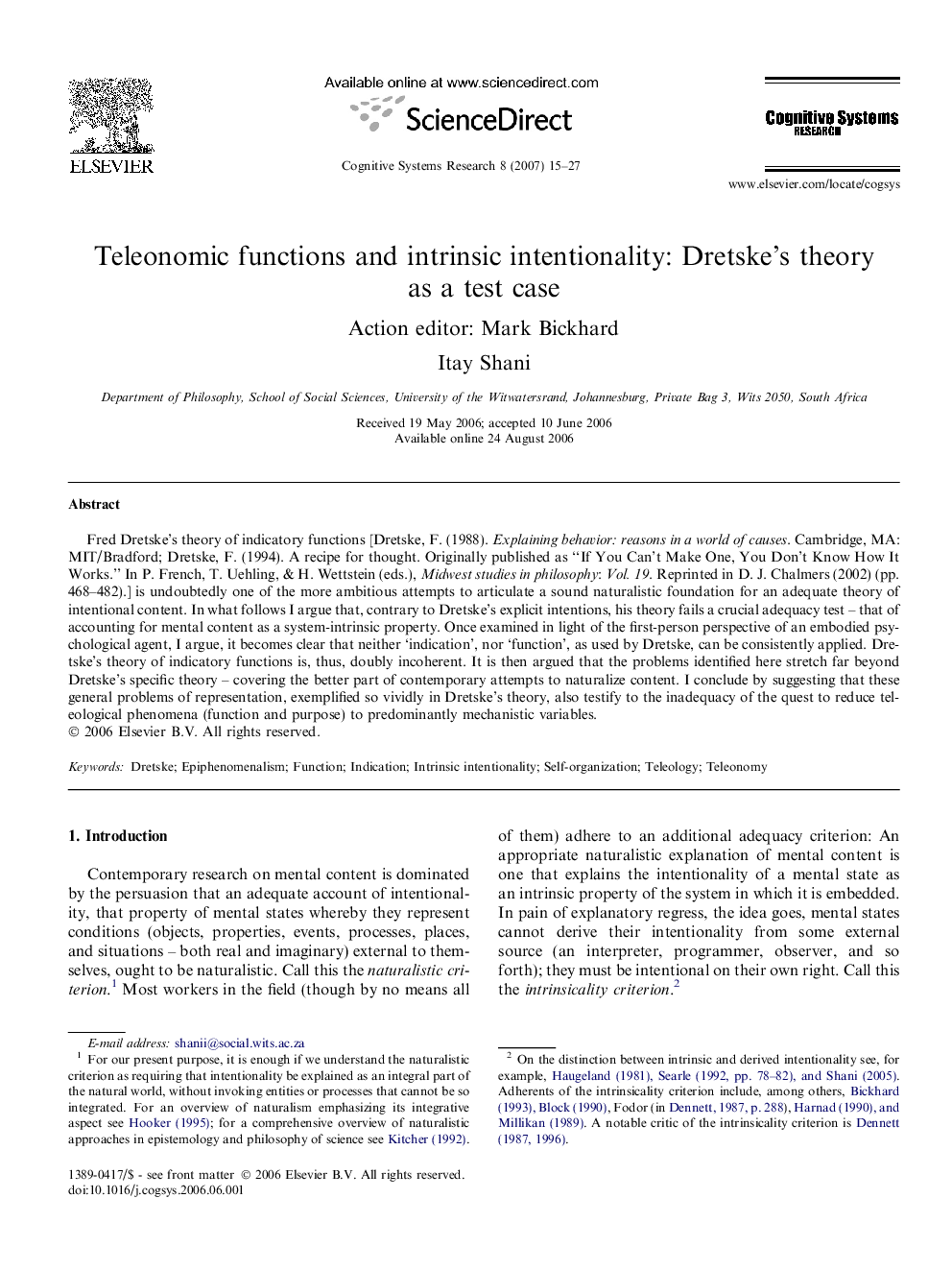| کد مقاله | کد نشریه | سال انتشار | مقاله انگلیسی | نسخه تمام متن |
|---|---|---|---|---|
| 378631 | 659175 | 2007 | 13 صفحه PDF | دانلود رایگان |

Fred Dretske’s theory of indicatory functions [Dretske, F. (1988). Explaining behavior: reasons in a world of causes. Cambridge, MA: MIT/Bradford; Dretske, F. (1994). A recipe for thought. Originally published as “If You Can’t Make One, You Don’t Know How It Works.” In P. French, T. Uehling, & H. Wettstein (eds.), Midwest studies in philosophy: Vol. 19. Reprinted in D. J. Chalmers (2002) (pp. 468–482).] is undoubtedly one of the more ambitious attempts to articulate a sound naturalistic foundation for an adequate theory of intentional content. In what follows I argue that, contrary to Dretske’s explicit intentions, his theory fails a crucial adequacy test – that of accounting for mental content as a system-intrinsic property. Once examined in light of the first-person perspective of an embodied psychological agent, I argue, it becomes clear that neither ‘indication’, nor ‘function’, as used by Dretske, can be consistently applied. Dretske’s theory of indicatory functions is, thus, doubly incoherent. It is then argued that the problems identified here stretch far beyond Dretske’s specific theory – covering the better part of contemporary attempts to naturalize content. I conclude by suggesting that these general problems of representation, exemplified so vividly in Dretske’s theory, also testify to the inadequacy of the quest to reduce teleological phenomena (function and purpose) to predominantly mechanistic variables.
Journal: Cognitive Systems Research - Volume 8, Issue 1, March 2007, Pages 15–27